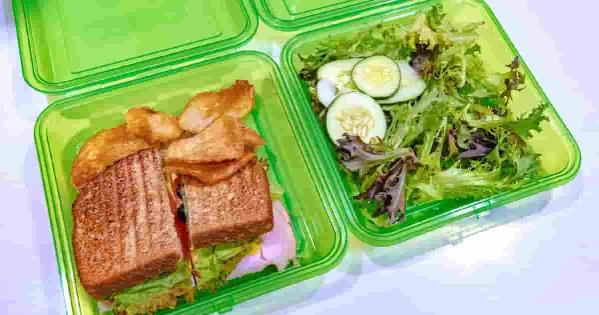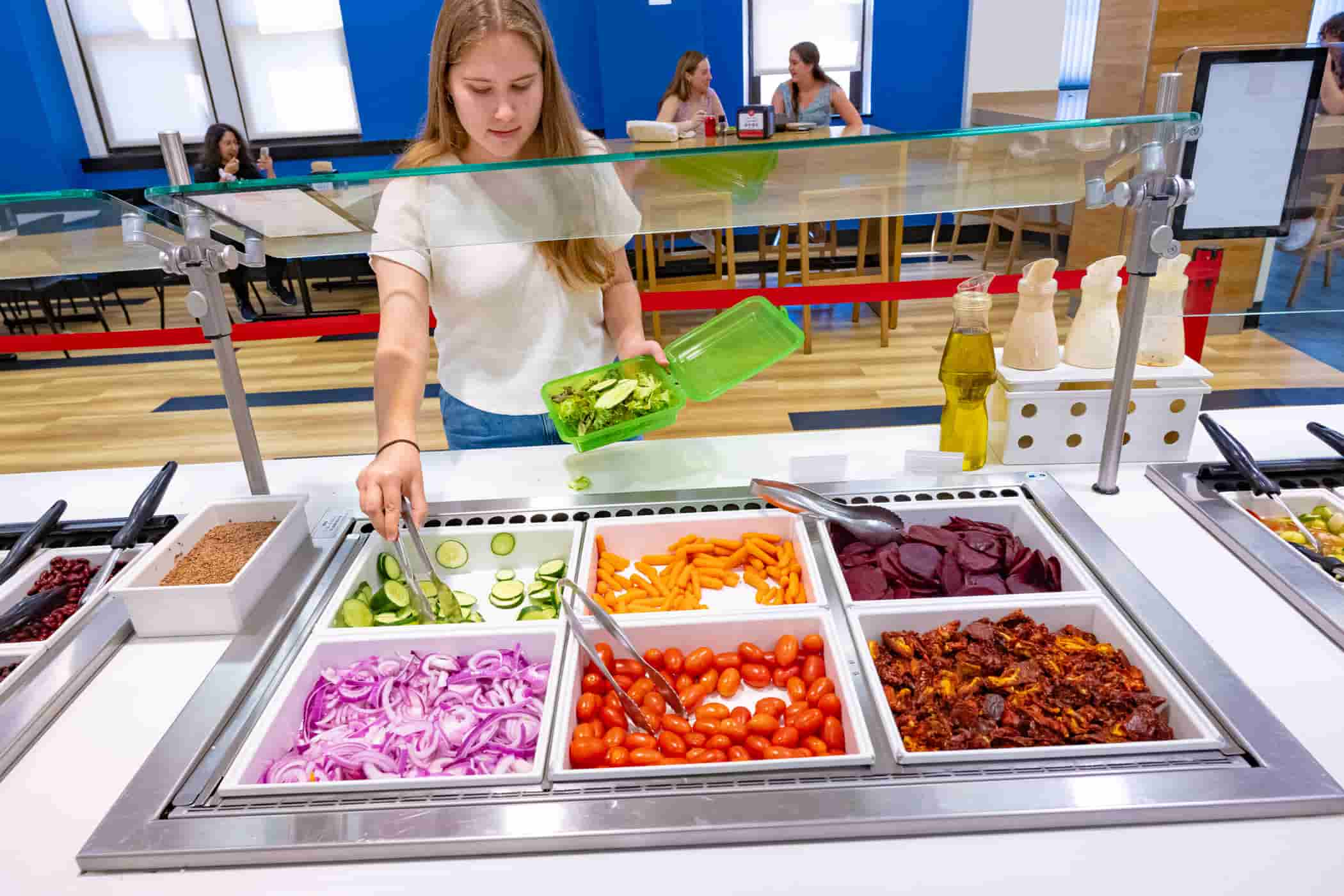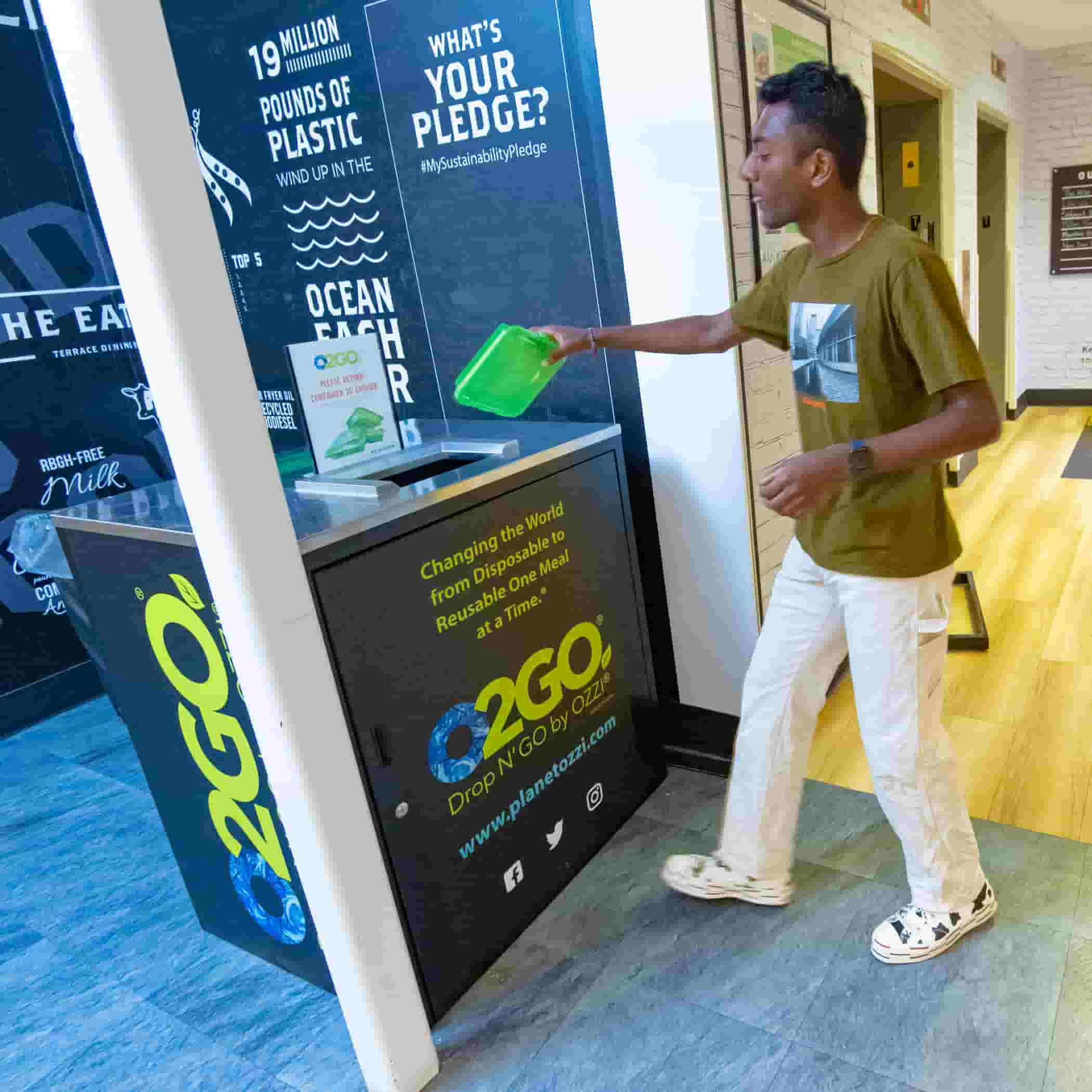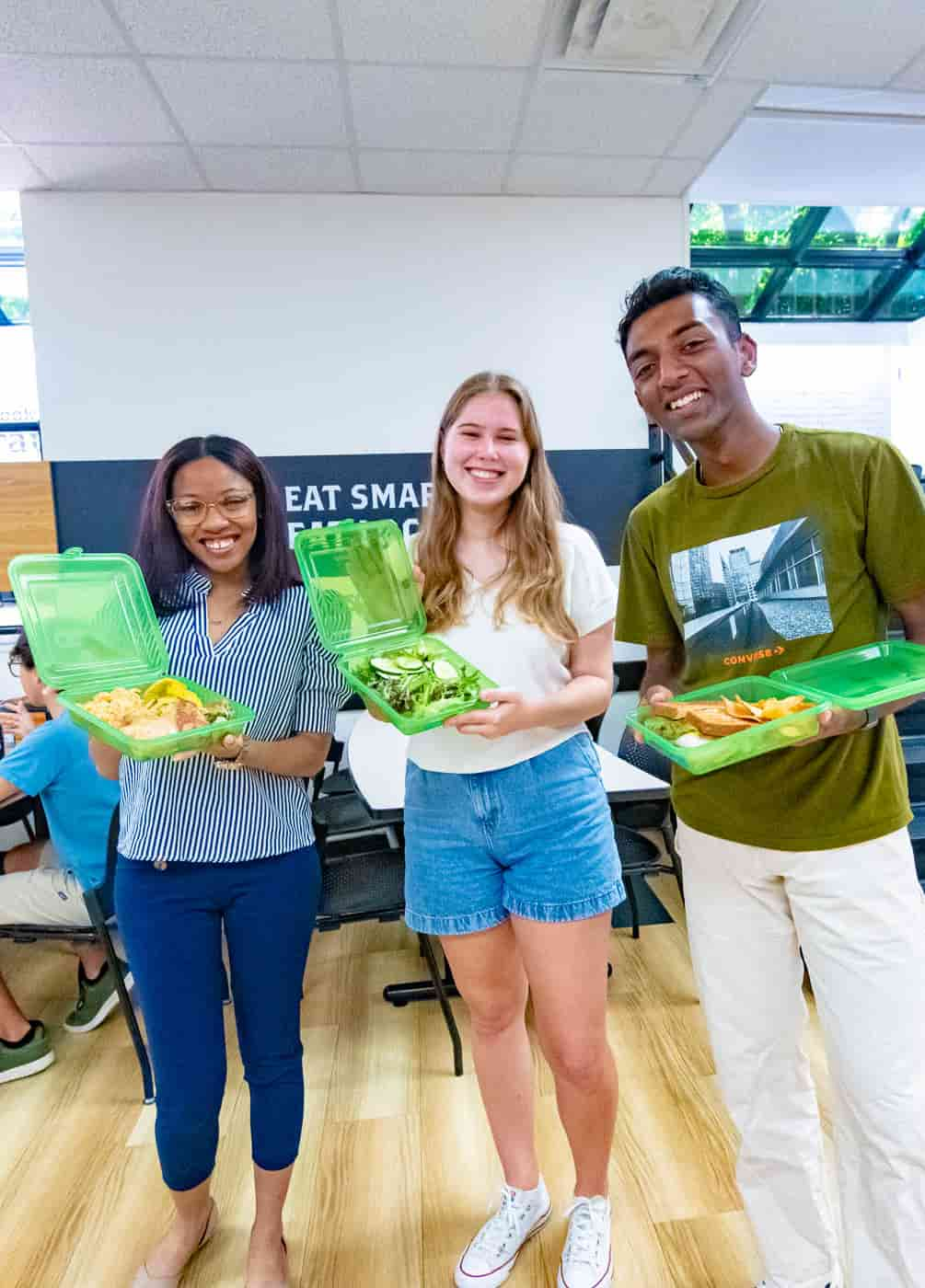American University Introduces Reusable To-Go Containers in Campus Dining

Takeout dining is a staple of college life, but it creates a lot of waste. Building on its comprehensive commitment to sustainability, American University has introduced reusable takeout meal containers in its main residential dining facility to reduce the waste created from single-use containers.
From its dining facility Terrace Dining Room, or TDR, AU serves roughly 39,000 meals per semester in takeout containers. It is estimated that the university will divert 2,571 pounds of landfill waste by switching from single-use to reusable containers. The nearly 4,000 AU students on university meal plans will receive free reusable takeout meal containers. Staff, faculty and other students who do not participate in meal plans can see a cashier in TDR to enroll in the program for $5.99 (when September ends the price will be $7.99.)

“AU is committed to acting on its zero waste goals and to further reducing its impact on the environment,” said Megan Litke, director of sustainability. “The use of reusable containers helps to reduce the amount of waste sent to the landfill and reduces emissions from the creation and disposal of single-use items. It also supports Washington, D.C. in its goal to reduce single-use food service items across the city.”
In its new sustainability plan, AU committed to achieving zero waste by 2030. The path to zero waste includes eliminating single-use plastics or containers and increasing the percentage of waste that is composted and recycled.
AU received a grant of $24,750 from the “District of Columbia Ditch the Disposables Award Program.” The program, coordinated by Chesapeake Bay Trust, the District of Columbia Department of Energy and Environment, and the Office of the State Superintendent of Education, provides support to schools and community-based organizations for their activities that will reduce food, food packaging and food waste. This work is another example of AU’s strategic priority to expand the university’s engagement with the greater Washington, D.C. region.

On the first day of classes of the fall semester, the Office of Sustainability, Chartwells Higher Education (AU’s dining partner), and AU Kitchen organized a “Waste Less” event to introduce students to the new containers. They also introduced new students to AU’s compost program and shared other ways to reduce waste including using plastic free toiletry items and reusable food storage bags.
“It was inspiring to see AU take concrete action towards its zero waste goal,” said new student Eryn Mikulicz, (SIS/BA,’26), who is an Eco Rep in the Office of Sustainability. “The containers are convenient for students, and they will significantly reduce waste from the dining room. The AU community is clearly dedicated to its sustainability goals, and I’m so excited to see the Office of Sustainability’s next initiatives!”
Chartwells Higher Education helped in obtaining the grant and is working with the university to make the transition to reusable containers.
The containers AU will use are the O2GO reusable meal container by OZZI. The O2GO reusable meal container can be used up to 300 times, according to the company’s literature. It is BPA free and recyclable, meaning that once an O2GO container has become worn down from repeated use, the #5 plastic can be melted down and remade into other recycled material products. Once a student has a container, they can get a meal from TDR. They return the container, which is cleaned for re-use.

“As the dining provider on campus, we are committed to supporting American University’s efforts to achieve their zero waste goals,” says Monalisa Prasad, National Director of Sustainability for Chartwells Higher Education. “The introduction of OZZI’s reusable to-go containers is just one example of how we are working together to reduce waste at its source for a more sustainable future.”
AU’s leadership in sustainability is woven throughout campus. From being the first carbon neutral university in the country and eliminating fossil fuel investments in our endowment to the updated 2021 sustainability plan and campus arboretum, AU is working to address the challenge of climate change.